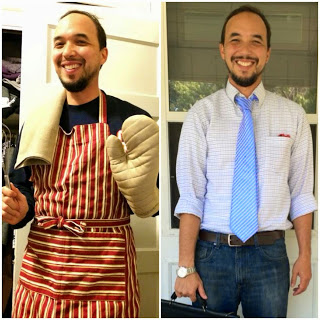I scold people for posting those stupid Facebook privacy disclaimers. I post replies with links to Snopes. I mock their lame "Better safe than sorry" prefaces. Nope. No. Not better safe than sorry, you're just posting that because you're too wishy-washy to admit that you're falling for it. I HATE when people post this dumb crap. I hate that it keeps resurfacing long after I'm sure that not only should everyone I know already understand that it's total BS, but so should everyone who has even heard of Facebook. I hate it.
But why? Why does it bother us so much. I'm certainly not alone in this. Just look at the hundreds of articles that are written and shared about it. Look at all the mocking posts that are written in response. People love to HAAAAAAAATE these stupid notices.
But WHY? Why do the articles have headlines like, "Watch out for these Facebook privacy hoaxes," and "Don't fall for the Facebook privacy notice hoax?" Why not fall for it? These headlines make it seem way more ominous than it is. It's even listed on a site called Scam Detector. It's not a malicious thing this hoax. It's certainly not a "scam." A scam implies that falling for it will do you some sort of harm, typically financial harm. But this bout of silliness doesn't actually harm anyone. So why do we care?
I couldn't really figure out the answer. I thought about it, even as I typed up witty yet gentle put downs on my friend's posts. Why did I care? Then I saw this and it explained everything:
 |
| I would totally credit this, but I can't find the source. If you know please tell me. |
And yet I still get this crap popping up in my feed, and it kills me. It kills me, and I think the reason it inspires such ire in many of us is because it shows that all these people we respect can be kinda dumb. Not just, "I turned on the wrong burner and super heated a non-stick pan" dumb, but really really dumb. Like, "I just sent my personal info, and yours, to a Nigerian Prince" dumb. It's even worse when it's our parents or mentors, people we look to for guidance and wisdom. Like, am I really supposed to take your advice on parenting or investing, or whatever when you're re-posting this nonsense? And your stupid "Better safe than sorry" only makes it worse because you're just screaming that even though you know you should know you're doing it anyway. How can I ever look at you and trust your judgement or your instincts ever again? HOW???
OK, yes I'm being hyperbolic. But I do think that the reason this otherwise harmless hoax vexes us so deeply is because it causes us to see the clay feet of people we respect. It's akin to that moment when you realize your parents don't actually know everything. There's a feeling of loss, of finding out about something we'd just rather not know. In short (too late), it's a bummer.
I won't go into how Facebook is really just a big thing that uses your profile to make money, but not from using your photos, or how it's actually this great tool that you get use for free. There's plenty of that out there. I will close with two statuses mocking this whole phenomenon that rang true to me today. First, there's this one from a friend of mine. It sums up nicely why these disclaimers are completely unnecessary:
"As of September 29, 2015, I hereby ban you all from posting stupid bullshit on your Facebook pages. This notice of prohibition of stupid bullshit is legally binding due to Q.E.D 123-456-789, and extends not only to stupid bullshit claims that Facebook is going to begin charging you money for a service that already generates a $5 billion annual operating profit through converting the stupid bullshit you post everyday into demographic information for marketers to further refine their stupid bullshit, but also the stupid bullshit claim that you can create a legal contract between yourself and a company with a valuation of $230 billion by posting some stupid bullshit words on a web site."The second comes from the Facebook page for the blog Modern Father Online. It's a rallying cry for us bloggers big and small.
THIS IS NOT A HOAX...As of September 30th, 2015 at AEST 8:00am UTC/GMT +10 hours, I DO give Facebook or any entities associated with Facebook permission to increase my organic reach of my public posts, both past and future. By this statement, I give notice to Facebook that it is strictly encouraged to let all my followers see everything I share, when I share it.
The content of this page is NOT private and confidential information. I WANT people to see what I'm sharing and they want to see it. Now there's no violation that can be punished by law (UCC 1-308- 1 1 308-103 and the Rome Statute), I'm not about to claim that... I just don't want to have to pay heaps of my hard earned in order to share my posts with people who want to see it.
NOTE: Facebook is now a public entity. They need to make money. I get that. But punishing the small time bloggers like me and asking for lots of money otherwise my posts won't reach any more that 2% of my followers is ridiculous. Of course, you as my followers can like, comment and share and help me out now and then so my posts stay in your news feed. That would be sweet.
Posted by Modern Father Online on Tuesday, September 29, 2015
Thanks, and remember, research before you re-post. The respect you save could be your own.




